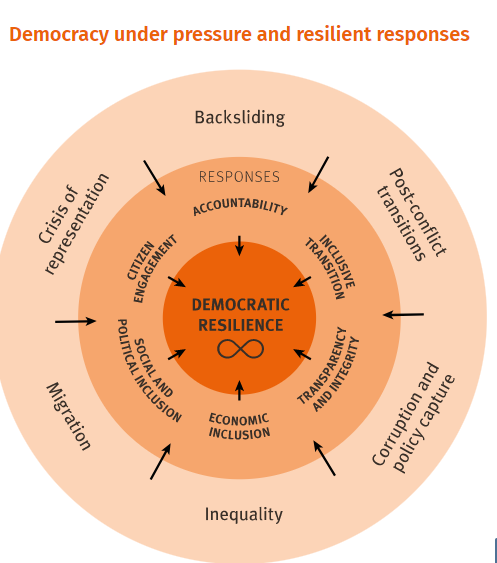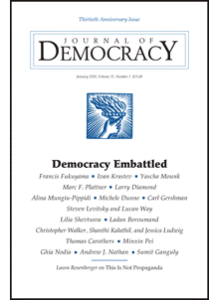
International IDEA
America must grapple with the reality that the unipolar moment is ending, the Texas National Security Review suggests.
A new bipolarity is fast emerging from the political wreckage of the post-Cold War decades, one that will likely prove more enduring and intractable than its Cold War predecessor, according to Andrew A. Michta, the dean of the College of International and Security Studies at the George C. Marshall European Center for Security Studies.
We are tracking for a world of two all-encompassing systems where ideological and cultural polarization between the West and the East will drive the confrontation even more than the rapidly shifting economic and military balances, he writes for The American Interest:
This nascent systemic bipolarity could end up being more enduring than its Cold War predecessor, for its ideological underpinning will be embedded in a foundational civilizational difference. The immediate drivers are at their core ideological, two mutually exclusive visions of how to organize society: on the one hand, an increasingly disaggregated liberal democracy and, on the other, an increasingly consolidated Chinese brand of commercial communism, both steeped in historically incompatible cultures. RTWT
 “China and Russia have shown how legacies of Communist authoritarianism can combine with predatory capitalism to build new political structures of daunting power,” Ai Weiwei writes for The New York Times.
“China and Russia have shown how legacies of Communist authoritarianism can combine with predatory capitalism to build new political structures of daunting power,” Ai Weiwei writes for The New York Times.
At the same time, the U.S. continually debates ideology’s role in our own policies, Walter Russell Mead writes for The Wall Street Journal. Should we maintain relationships with states that trample human rights? Are we morally compelled to protect the liberties of people abroad? Can we make alliances with countries whose rulers oppress their citizens?
As we learned in the 1920s and 1930s, the combination of public stress and strong undemocratic movements can be irresistible, especially in newer democracies, argued Brookings analyst William Galston. But the oft-heard analogy between those decades and our current situation obscures more than it reveals. Today’s economic ills pale in comparison to the Great Depression of the 1930s, and today’s autocratic regimes lack the ideological attraction that fascism and communism held at their peak, he wrote for the NED’s Journal of Democracy:
Still, there is no cause—and no excuse—for complacency. The current ills of liberal democracy are deep and pervasive. Surmounting them will require intellectual clarity and political leaders who are willing to take risks to serve the long-term interests of their countries. Human choice, not historical inevitability, will determine liberal democracy’s fate. RTWT







